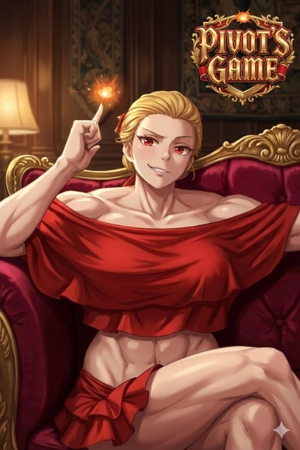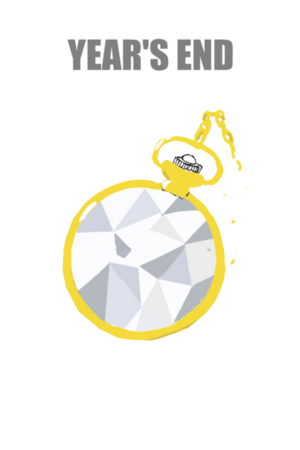Chapter 5:
CHAPTER V: He was never meant to live...
Handcuffs and Bloodstains
TW: (Gore, mention of weapons, bl0od, trauma, survival... If you find any of these uncomfortable, please think again before reading further!! )
They declared him dead before he ever lived.
He came into the world too early, swaddled in silence and the soft stench of bleach.. The doctors didn't speak as they stared at the small, pale infant on the table–white as the snowbanks that smothered the hospital windows.. No one expected him to breathe and yet.. A minute later, he did.. A gasp. A wheeze. A weak cry that sent a nurse stumbling back, crossing herself.
Rurik Dyavol Sokolov was not given a name..
His mother whispered that he was a curse, that God had sent her a child with skin like bone and eyes too red to be human.. In Russian folklore, albino children were said to be omens–specters born to bring ruin.. Her mother-in-law agreed. Neighbors crossed the street when they saw her push them pram. And when the boy grew old enough to laugh, his own voice startled her into silence.
His father, a high-ranking enforcer in the local mafia, had no space for superstition. He didn't believe in omens–he believed in weapons.
And so, he raised Rurik as one....
No lullabies. No stories. No warmth. Instead, tests: how long could the boy stand on ice without shoes; how many lashes he could take without crying; how long could he keep his hands submerged in ice water before begging...
Rurik never begged...
By age five, he could dismantle a handgun. By seven, he'd seen more corpses than most adult men.. His father made him watch every execution. Sometimes, he was made to clean the blood. Other times, he simply stood there, expressionless, a ghost among killers...
On his ninth birthday, his father brought him a gift....
Not wrapped. Not sweet.
A Makarov pistol. Fully loaded.
They were in a snow-coated clearing near the woods, two people kneeling on the ground in front of him.. One was a stranger, the other–his mother.. Shaking, her face gaunt and worn. His father spoke in that calm, commanding voice that had once made full-grown men piss themselves...
"Choose one."
Rurik stared at the gun. Then at the two people on their knees...
He didn't ask why. He didn't cry. He didn't even flinch..
He simply raised the weapon and with chilling precision, shot.. His father between the eyes..
The snow was quiet again...
His mother screamed. Or maybe she didn't. He didn't remember. All he remembered was the cold.
By the end of that night, she was gone...
She left him in the forgotten, Soviet prison camp on the edge of the Urals, tucked behind fences and winter storms. The guards didn't know what to do with him. He didn't speak unless spoken to. He didn't eat unless offered food. And he didn't blink when they cursed or threatened him. They started calling him "ghost-boy."
No one asked his name.
He didn't have one anyway...
----
The Soviet Union collapsed like a rotting cathedral–loud, bitter and all at once. In the chaos that followed, records vanished, prisoners escaped or starved and forgotten places like the camp Rurik haunted were left to rot in silence....
He was eleven when the last guard left...
No goodbye, no bullets. Just silence. And frostbite.
The children inside either died... Or escaped...
He was only eleven...
He lived on scraps, rats and stolen supplies from whatever remained of the nearby town.. He didn't leave. That camp was the only place that never lied to him–it was cold, cruel and honest...
And then, one day, men came..
Not soldiers, not aid workers.
Auctioneers.....
They were trafficking survivors from forgotten ruins–ghost towns and war camps–children especially... The younger, the better...
They collected what the world had thrown away.. They took him, calling him "merchandise." No name. No records. Just pale skin and cold dead look in his eyes.
They smuggled him through borders like a crate of stolen vodka. Eventually, he reached South Korea...
He wasn't meant to stay there.
They were trying to sell him.
But Rurik escaped–left a trail of blood in a dockyard warehouse and vanished into the alleyways of Busan.
He lived under a broken billboard near a cemetery. Ate out of trash. Watched people more than he spoke. He had no plan–just survival...
Then one day, he saw him...
A boy–a bit older than him.. Neatly dressed in a school uniform, though his shoes were soaked and his umbrella long forgotten on the ground.. He walked with hesitant steps, stopping at a particular grave that had no flowers. No photographs. Just a name craved in stone, as if that was enough..
The boy sat cross-legged in front of it.
He pulled out a single box from his bag–white, folded at the top.. It looked like a box of pastries.. Which were probably crumbled inside, probably melting.
He placed it carefully on the grave.
Then silence.....
He didn't cry, he didn't speak. Didn't light a candle or pray. He placed the box beside the grave like an offering and stared at the name craved in stone.
And then it happened. Not a sob, not a cry.
Just a tear.
It slid down his cheek quickly like he wasn't supposed to let it fall. Like letting it out was a betrayal of something strong. A promise, maybe...
Rurik should've left. But something about the way the boy sat there, as if mourning was a debt he had to pay every year–it anchored him.
When Rurik saw the moment, it broke him–just one tear down a tense cheek, no sound.
He didn't know his name.
He only remembered the colour of his eyes. Hazel–but when the light hit them just at the right angle, they shimmered like blue glass..
It was the first human emotion Rurik had seen that wasn't fear or rage...
And for some reason, he never forgot it..
The next night, he returns–but the boy dosen't. Only the crumbled pastry now replaced with a fresh one...
He doesn't eat it.
But he sits near it.
Just once..




Please sign in to leave a comment.